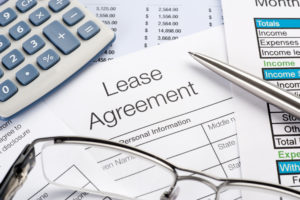Home Loans are essentially commitments which last for a notably longer duration, generally for about 10 – 20 years. Buying a house is a crucial and heavy task which is inclusive of extensive planning, fund management and home loan execution along with managing all the added cost and the cost of ensuring that the investment is in the right place and for the right property. The major problem that people face is how to secure a home with meagre and limited budget. You are required to pay a regular EMI amount, for this you need to have a decent salary and enough money to handle any emergency and uncalled for costs. To take away these worries, you may resort to Top-Up loans on Home loan which will comfortably help you meet expenses without being heavy on the pocket.
A Top-Up Loan is essentially the additional loan which is secured over and above the existing home Loan this helps meet the additional and sudden expenses that just emerged out of the blue. The existing home loan lender helps avail the loan as it is offered as an additional loan on the house. Banks usually offer a maximum of 60-70% of current market value of the property. The loan also acts as a goodwill credit to the customers who hold a decent and good credit history.
Pros & Cons of taking home loan balance transfer and top up
Pros:

- Top-Up loan doesn’t involve voluminous documentation and paper work, since the bank already has all the details required due to handling the existing home loan for you. With all the documentation already taken care of, you are left with a swift and faster processing, which is much faster than home loan.
- Top-up loan acts as a guard and extra financial support in times of crisis. This comes prominent especially when the home loan fails too suffice enough for the situation.
- Any of your expenses can be catered well with top Up Loan as it is taken on the home loan. For instance, you might have home interior expenses, buying in new furniture expenses, or taking care of personal expenses. You are not required to provide a proof of expenses to the bank to procure a loan.
- A home loan top-up is generally more or less the same rate as your home loan. This has been the major and one of the prominent reasons which has led to people turning towards top-up home loans. A regular personal loan may cost you higher than a top-up loan. Hence, you may save lot more if you opt for Top-up loan.
Cons:

- A Home Loan Top-Up is not available for anyone who doesn’t have a home loan. Only the home loan customers can avail it. If a person has had a bad credit history or suffers some default payments, he can’t avail the Top-up loanat all.
- We tend to ignore a visible fact that the future liability of EMI is scaling new heights in the bargain. Your income is still the same; and yet, you have one additional portion of the amount that falls under the repayment category.
- You will be required to avail the top-Up Loan from the same lender no matter what your relationship is with the bank.
While a home loan balance transfer and top up brings in financial stability which is imperative when we need positive and negative aspects of having it inclusive of the present home loan. You must begin with a deep dive analysis and make sure you know what is beneficial for you in the long run. Be sure if this is a great solution or it is just a temporary shift from the current crisis.













